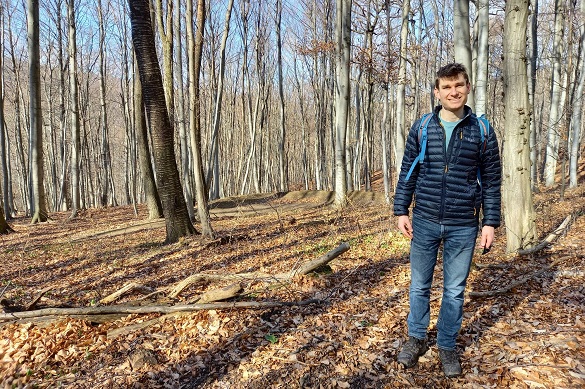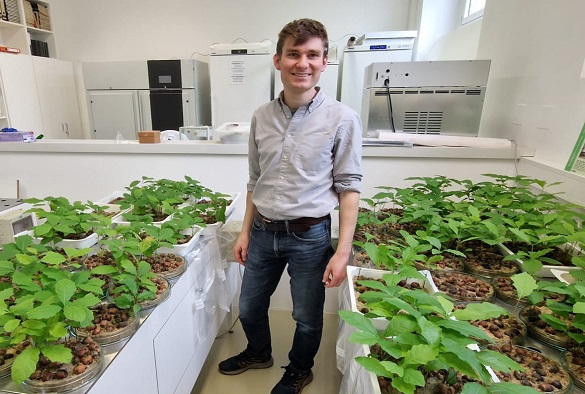
Dr Andrew Hacket-Pain is a Senior Lecturer in the University’s School of Environmental Sciences, and is currently a UKRI Treescapes Fellow, funded by Defra.
He recently returned from a six-week placement in Vienna, working alongside Austrian academic and industry partners to gather evidence to inform policy and practice in the UK that will expand domestic tree seed supply.
“Trees store carbon, provide timber, support biodiversity and enhance mental health, among many diverse benefits. While tree cover in the UK is amongst the lowest in Europe, it is now expanding, through initiatives such as the Northern Forest project to plant 50 million trees across northern England, which includes the Mersey Forest.
A major challenge in the expansion of woodlands is the sourcing of seeds, especially from timber-quality broadleaved trees, including oak. Only 60% of UK woodland is managed, and there is a major push from government to promote the establishment of productive, managed woodland that will produce high-quality, and fast-growing, hardwood timber – adding an economic payback to the benefits coming from carbon sequestration, enhancement of biodiversity and other benefits that we derive from woodland.
Sourcing high-quality seeds is a widely acknowledged bottleneck to UK woodland expansion. My recent trip to Vienna enabled me to learn lessons from a major research project in Austria that seeks to address similar challenges with seed supply, as Austria transitions from a spruce-dominated forest to a landscape and industry based on a more diverse mix of species.

One of the key challenges with sourcing seed from broadleaved species is that the seeds do not store well, so for species like oaks, it is impossible to build up seed reserves. Instead, the supply of seeds is dependent on the crop available each autumn, but its size varies dramatically between years – a typically synchronised boom-and-bust cycle that is known as masting.
So, how to contend with this unreliable seed supply? One way is to know when the large seed crop years will occur, so that harvesting efforts can be carefully planned to take advantage of the occasional bumper seed crops. While in Vienna, I worked with colleagues to develop masting forecast models, using a dataset we built as part of a previous project (MAST-NET). The next steps will be to test whether these models work on notoriously unpredictable oak species, a priority identified by project partner Action Oak.
Alternatively, the trees can be managed so that their irregular seed production is controlled by forest managers, with different trees reproducing in different years to even out the supply.
The Austrian project is experimenting with plant hormonal treatments that regulate when a tree produces flowers and subsequently acorns. This could transform seed production in seed orchards. like those developed by project partner Future Trees Trust, enabling managers to ensure that some trees are producing acorns each year. In combination with masting forecasts, managers could even prioritise acorn production in seed orchards in years when wild-grown trees are predicted to produce low crops. Those manipulation experiments are ongoing, and we are looking forward to the first results this autumn.
The focus of my trip was to gather evidence and establish relationships to help exchange knowledge back to the UK, so that we can also gain value from this ground-breaking project. At the end of the year, we will host an webinar to share the results of the Austrian project and provide the opportunity for UK policymakers and practitioners to directly connect with experts in Austria.”
Andrew received funding from Defra through a UKRI Future of UK Treescapes programme Fellowship, “Seeds for Treescapes”. You can find out more about Andrew’s research here.
You can find out more about Future Trees Trust here and Action Oak here.
